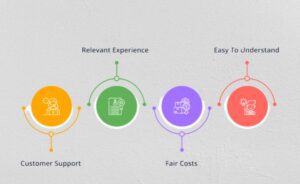Top Payroll Services for Small Businesses: A Guide to Choosing the Best Payroll Provider
For small businesses, managing payroll can be a challenging task. It involves calculating employee salaries, managing deductions, handling tax withholdings, and ensuring compliance with local labor laws. Errors in payroll processing can lead to significant consequences, such as financial penalties, employee dissatisfaction, and non-compliance with tax regulations. This is why choosing the right payroll service provider is critical for small businesses.
In this comprehensive guide, we’ll explore the top payroll services for small businesses in Delhi, what features to look for, and how to choose the best payroll provider based on your company’s unique needs. We’ll also discuss the benefits of outsourcing payroll and provide a roadmap for selecting the ideal payroll solution.
The Importance of Payroll Services for Small Businesses

Small businesses often lack the in-house resources and dedicated HR departments that larger enterprises have. This makes payroll management particularly challenging, as it requires a deep understanding of local tax laws, statutory deductions, and regulatory compliance. Outsourcing payroll to a service provider can help small businesses streamline operations, reduce errors, and free up valuable time and resources.
Payroll services offer several key advantages:
Accuracy: Payroll services use advanced software to ensure accurate calculations of wages, deductions, and taxes, reducing the risk of costly mistakes.
Compliance: Payroll providers stay up to date with changes in tax laws and labor regulations, ensuring that your business remains compliant with all legal requirements.
Time Savings: Outsourcing payroll frees up valuable time for business owners and HR staff, allowing them to focus on core business functions.
Cost-Effective: While outsourcing payroll has a cost, it is often more affordable than hiring a full-time HR professional or dealing with penalties for payroll errors.
Employee Satisfaction: Ensuring timely and accurate payroll processing improves employee satisfaction and helps maintain a positive work environment.
Key Features to Look for in Payroll Services
When choosing a payroll service for your small business, it’s essential to understand which features are most important. While some features are standard across payroll providers, others may offer specific tools or benefits that cater to the unique needs of your business.
Here are the key features to consider:
1. Automated Payroll Processing
The core feature of any payroll service is its ability to automate payroll processing. This includes calculating wages based on hours worked or salaries, managing deductions, and processing payroll on a regular schedule. Automated payroll systems reduce the likelihood of human error and ensure that employees are paid accurately and on time.
Additionally, look for a system that supports multiple pay frequencies, such as weekly, bi-weekly, or monthly payroll cycles. This flexibility is essential if your business employs a mix of hourly and salaried workers.
2. Tax Filing and Compliance
One of the most critical aspects of payroll management is ensuring compliance with local, state, and national tax laws. Payroll providers should automatically calculate, withhold, and file taxes on your behalf. This includes income taxes, social security contributions, unemployment taxes, and any other statutory deductions required by law.
In India, this would include:
Provident Fund (PF) contributions.
Employee State Insurance (ESI) contributions.
Tax Deducted at Source (TDS) compliance.
Filing statutory returns, such as EPF, ESI, and TDS.
A good payroll provider will also issue tax forms such as Form 16 to employees and ensure that all payroll-related filings are completed accurately and on time.
3. Employee Self-Service Portal
An employee self-service portal is a valuable feature that allows employees to access their payroll information, including payslips, tax documents, and leave balances, without needing to go through HR. This feature enhances transparency and empowers employees to manage their own payroll-related queries.
For small businesses, this feature can reduce administrative workload while improving employee satisfaction by providing easy access to important information.
4. Integration with Accounting Software
Integration with your existing accounting software is crucial for maintaining accurate financial records and ensuring seamless bookkeeping. Many payroll providers offer integrations with popular accounting platforms like QuickBooks, Zoho Books, and Tally, making it easier to transfer payroll data into your accounting system.
This integration helps in automating payroll expense tracking, simplifying tax reporting, and ensuring that financial statements reflect accurate payroll information.
5. Time and Attendance Tracking
For businesses that pay employees based on hours worked, time and attendance tracking is a vital feature. Many payroll services include or integrate with time-tracking tools, allowing employees to clock in and out, and automatically syncing work hours with payroll calculations.
This feature ensures that employees are paid accurately for the hours they’ve worked, reducing the risk of disputes or errors related to attendance and overtime.
6. Customizable Payroll Deductions
Different businesses offer various benefits and deductions, such as health insurance, retirement plans, or bonuses. A good payroll service should allow you to customize these deductions to meet your specific needs. This includes setting up deductions for employee benefits, voluntary contributions, or custom tax-saving schemes.
The ability to customize deductions ensures that your payroll system is flexible enough to handle various employee benefits without requiring manual calculations.
7. Mobile Access
In today’s digital age, many business owners and HR professionals manage their tasks on the go. Payroll services with mobile-friendly platforms or apps allow you to process payroll, review reports, and approve timecards from your smartphone or tablet. This flexibility is essential for small business owners who may not always be in the office.
8. Customer Support
When issues arise with payroll processing, it’s important to have reliable customer support to resolve problems quickly. Look for a payroll provider that offers strong customer support, including live chat, phone support, and a knowledge base with FAQs and tutorials.
A payroll service provider with responsive support can make all the difference when handling unexpected issues or compliance-related questions.
How to Choose the Best Payroll Provider for Your Business

Now that we’ve explored some of the top payroll providers, let’s discuss the steps you should take to choose the best payroll service for your small business.
1. Assess Your Business Needs
Start by evaluating your business’s specific payroll needs. Consider the size of your workforce, the frequency of payroll processing, and any unique requirements, such as compliance with local labor laws or managing employee benefits. Understanding your needs will help you identify the features that are most important in a payroll provider.
2. Evaluate Pricing
Cost is a significant factor when choosing a payroll service, especially for small businesses with limited budgets. Payroll providers offer different pricing models, including per-user fees, subscription plans, or pay-per-payroll-run options. Make sure to choose a provider whose pricing structure aligns with your budget and offers the necessary features.
3. Consider Compliance Needs
Payroll compliance is essential for avoiding penalties and legal issues. Ensure that the payroll provider you choose can handle all necessary tax filings and statutory requirements, such as PF, ESI, and TDS in India. The provider should also stay updated with any changes in labor laws or tax regulations.
4. Check for Integration Capabilities
If you’re already using accounting or HR software, it’s essential to choose a payroll provider that integrates seamlessly with your existing systems. Integration simplifies payroll data transfer, reduces manual work, and improves overall efficiency.
5. Test Customer Support
Strong customer support is crucial for resolving payroll issues quickly. Before committing to a payroll provider, test their customer service options by asking questions or requesting a demo. Ensure that the provider offers multiple support channels, such as phone, chat, or email.
6. Review Security Features
Payroll data contains sensitive employee information, including salaries and tax details. Make sure the payroll provider you choose uses encryption, secure servers, and access controls to protect your data and ensure compliance with data protection regulations.
Conclusion
Choosing the right payroll service in Delhi is a critical decision for small businesses, as it directly impacts payroll accuracy, compliance, and employee satisfaction. By considering factors such as automation, compliance management, employee self-service, and integration capabilities, you can select the best payroll provider to meet your needs.
At ACATL India, we understand the unique challenges that small businesses face in managing payroll. Our expert team is dedicated to helping businesses navigate the complexities of payroll processing, compliance, and statutory requirements, ensuring that you choose the best payroll solution for your company’s growth and success.
1. Why is payroll outsourcing important for small businesses?
Payroll outsourcing is important for small businesses as it helps streamline payroll operations, ensures compliance with tax laws, reduces errors, and saves time, allowing business owners to focus on core operations.
2. What are the key features to look for in a payroll service?
Key features to look for include automated payroll processing, tax filing and compliance management, employee self-service portals, accounting software integration, time and attendance tracking, customizable payroll deductions, and mobile access.
3. How does automated payroll processing benefit small businesses?
Automated payroll processing eliminates manual calculations, reduces the risk of errors, and ensures employees are paid accurately and on time. It also helps businesses handle different payroll cycles and deductions more efficiently.
4. What is the role of a payroll provider in compliance?
A payroll provider ensures compliance by calculating and withholding taxes, filing statutory returns like PF, ESI, and TDS, and staying up to date with changes in local, state, and national labor laws.
5. Why is an employee self-service portal important?
An employee self-service portal allows employees to access their payslips, tax documents, and leave balances directly, reducing administrative workload and improving employee satisfaction.
6. How do payroll services integrate with accounting software?
Payroll services often integrate with popular accounting software like QuickBooks, Zoho Books, or Tally, which allows seamless transfer of payroll data into your financial records, improving bookkeeping and tax reporting accuracy.
7. How do payroll services handle time and attendance tracking?
Many payroll services offer integrated or built-in time and attendance tracking features that sync with payroll calculations, ensuring that employees are paid accurately for the hours they’ve worked.
8. What are the security features of payroll services?
Payroll services use security measures like data encryption, secure servers, and access controls to protect sensitive employee information and ensure compliance with data protection laws.
9. What factors should small businesses consider when choosing a payroll provider?
Small businesses should assess their payroll needs, consider pricing models, evaluate compliance capabilities, check integration options with existing software, test customer support, and ensure data security features are in place.
10. What are some top payroll services for small businesses in India?
Some top payroll services for small businesses in India include Zoho Payroll, QuickBooks Payroll, Keka HR and Payroll, GreytHR, and RazorpayX Payroll, each offering different features like automated processing, compliance management, and employee portals.



